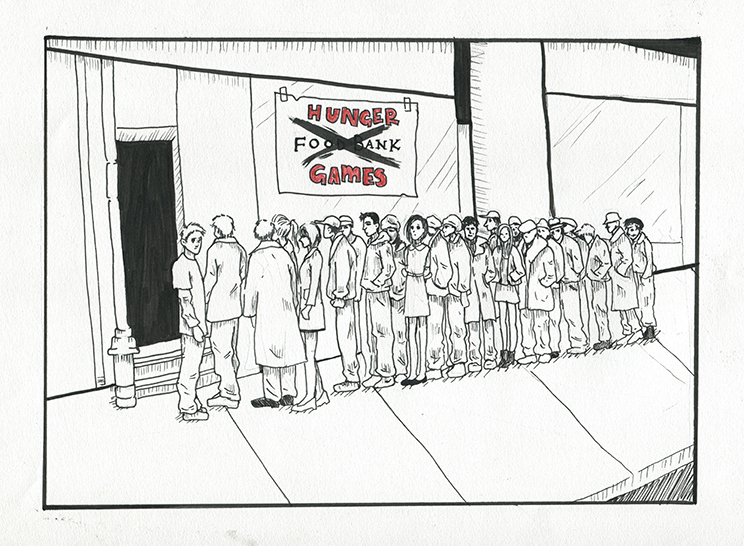‘The Hunger Games’ and Income Inequality
Some interesting comparisons can be drawn from the world of ‘The Hunger Games’ and the United States today
With the recent release of “The Hunger Games: Catching Fire” in December, it’s hard not to look closely at the story and draw some interesting comparisons to the current state of our society. Examining the main themes from The Hunger Games and issues the United States is currently facing reveals that we are heading down a depressing road.
The Hunger Games is set in a dystopian North America where the top portion of society controls all the wealth. Everyone else lives in extreme poverty, separated by districts and forced to offer tributes for The Hunger Games. Regular people are forced to scavenge for food, have no prospects of bettering their lives, and are in a constant state of fear. This sounds pretty crazy.
Not so crazy, it turns out. In reality, extreme inequality is dangerously close to being accepted as the norm. According to “Forbes Magazine” the top 1% of individuals within the U.S. control 40% of the nation’s wealth. The bottom 80% owns 7%. What’s worse, Dan Clawson notes in his book “The Next Upsurge,” that the top executives saw their incomes rise over 500% in the 1990s and their salaries continue to increase while middle class wages remain stagnant. If the federal minimum wage were adjusted to reflect the increase in corporate CEO’s salaries since the 1970’s, it would be over $25 an hour. No, the federal minimum wage isn’t even a living wage – it won’t bring a family to the poverty line.
Poverty, no doubt, is one of the main themes of The Hunger Games. In response to extreme poverty, Katniss becomes a skilled hunter, putting food on the table and bartering for goods. Here in the United States, we have a little thing called Food Stamps, a government program that helps to feed millions of poor individuals and their families. Just this November, politicians in Washington D.C. allowed the Recovery Act to expire, leading to about 48 million people having their food stamps cut. Whether in the House or Senate, food stamps are still on the chopping block. Republicans in the House are pushing a farm bill that would cut $38 billion from the program in the next ten years.
So, what gives? Why would we spend twelve dollars a ticket to go see Jennifer Lawrence in The Hunger Games when we can take a drive to the food bank and see a real life Hunger Games right in front of our eyes? The likely answer is that, like everyone in The Hunger Games, most Americans are easily distracted: focused on the newest iPhone while living paycheck to paycheck, with no hope of upward mobility, much less retirement.
Unfortunately, income inequality hasn’t become the subject of national debate. However, it’s something that students should think about, especially while watching The Hunger Games. Truth is, the country we are inheriting is markedly different than the one our parent’s grew up in. Inequality hasn’t been this pronounced since the 1920s and, if allowed to persist, our ability to achieve the American dream or even find a decent paying job out of college is in extreme jeopardy.



